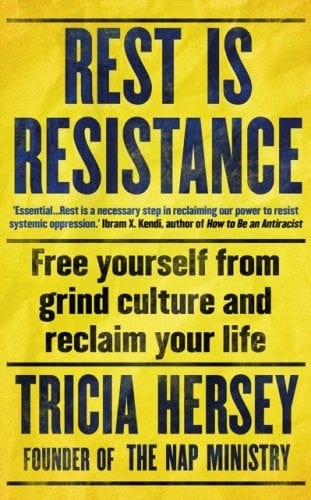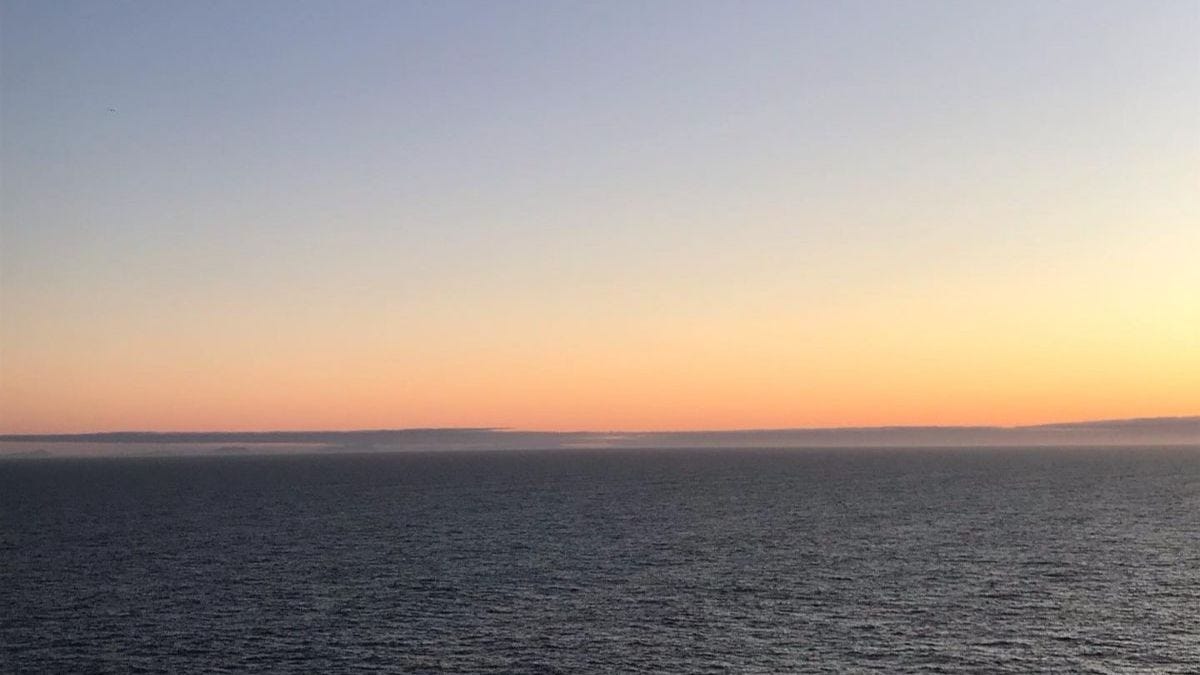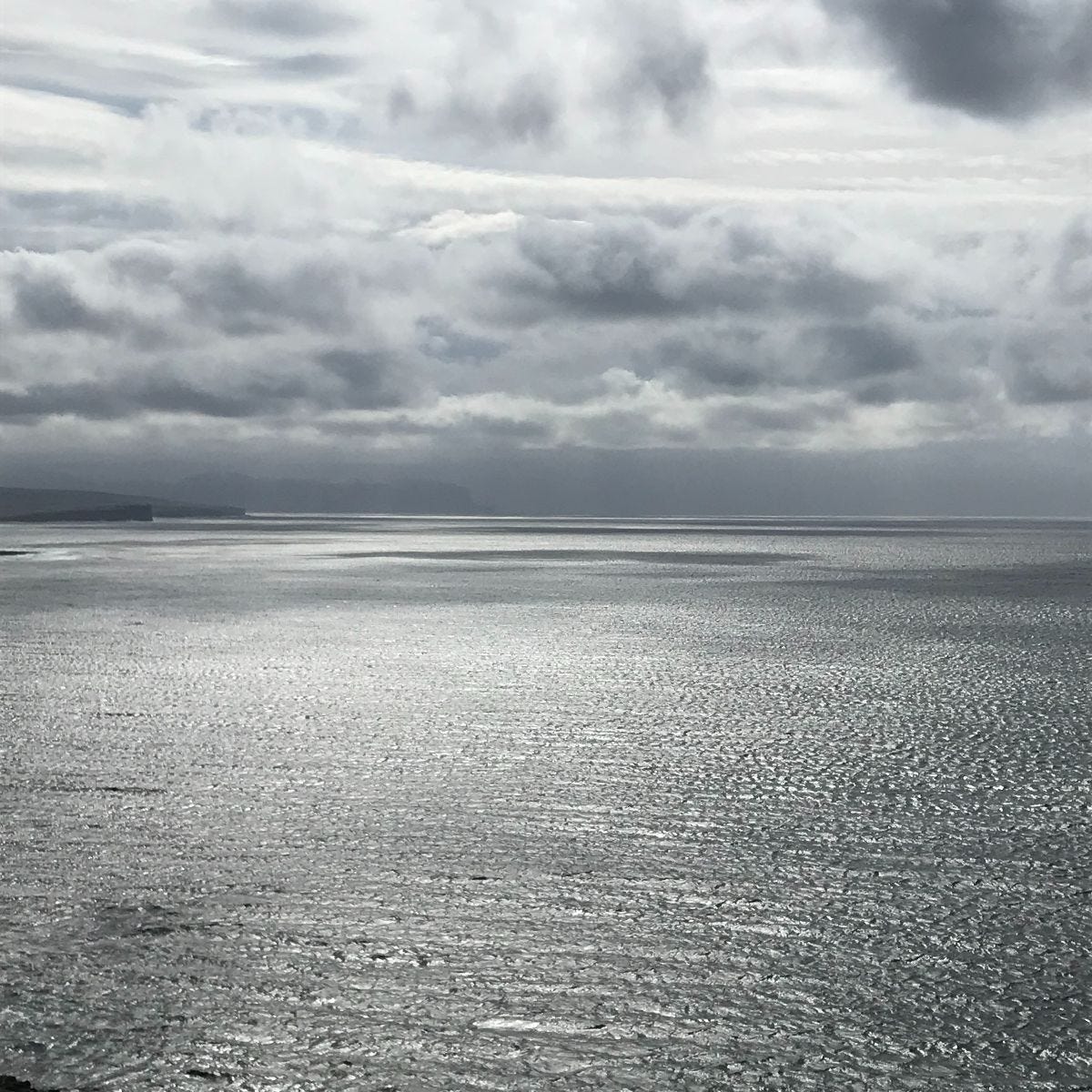Hello Everyone!
I’ve come back from a weekend in London with a stinking cold! So this week’s topic is a timely one, while I take a slower pace than usual to let my body recover.
Resting and taking holidays when you’re self-employed is difficult. There is always something that needs doing. No holiday pay means earnings take a hit, deadlines don’t move just to fit around you, and the sheer momentum of the work habit keeps your wheels turning week after week until, before you know it, summer is over and you hardly looked up.
But this summer, for two whole weeks in August, I will be resting. I will be reading. I will be napping. After all, how can I encourage my mentoring clients to find working rhythms that are sustainable over the long term, if I am not doing the same myself?
It seems a good moment to remind ourselves of the radical power of rest, slowness and silence, inspired by a timely re-read of Tricia Hersey’s polemic for naps “Rest is Resistance”
Although she is the founder of the wonderfully named Nap Ministry, Hersey is firm that her work in defence of rest is about a lot more than naps:
“My rest as a Black woman in America suffering from generational exhaustion and racial trauma always was a political refusal and social justice uprising within my body.”
In ‘Rest is Resistance’ she presents an incantatory manifesto that reads like a fiery sermon (she is the daughter of a preacher after all) on reclaiming your life from the ‘grind culture’ we have been socialized into.
Hersey shows how and why taking rest feels countercultural, even transgressive. We have learned that rest is something we need to earn. What drives this pervasive lack of rest and our ever-increasing sense of urgency is, she argues, the fear, trauma and violence of living in a Capitalist society where our only value lies in our earning power. We have to sell our time and labour in exchange for the wages we need just to survive.
The fear is real
The fear of poverty is real and this fear has stolen us from our true selves. Hersey calls this true self ‘divine’, but it sounds very like what Thich Nhat Hanh would call our ‘true mind’ or ‘Buddha nature’. You don’t need to hold a theistic worldview to sense the truth of what Hersey argues: that our culture has stolen something of incalculable value from us. We need to be reminded that we are enough, just as we are.
We don’t have to be always doing, Hersey insists. We can allow ourselves to just be, without forever getting and spending. Just being born is enough. We don’t have to earn our right to be here. We have nothing to prove. Inhabiting this truth for even a few minutes a day is a radical recalibration of all we have been socialised to believe. Hersey insists
“We are not resting to be productive. We are resting because it is our divine right to do so.”
This is rest as radical liberation.
Because it’s true, we always feel like we have something to prove, that we have to earn our right to be here.
Hersey shows how this is born out of our fear, a fear that becomes ever more acute as we see our social safety nets stripped ever more threadbare: health care, social care, financial support during illness, unemployment or old age.
And that’s not even to begin to touch on the fear we feel around climate change and accelerating biodiversity loss, and what we need to be doing about it.
Hersey resists the notion that rest is a privilege. It is, she insists again and again, a human right. And as an African American from a working-class background, she understands acutely that the pervasive lack of rest we increasingly feel must be understood within the brutal intersecting dynamics of chattel slavery, white supremacy and Capitalism.
“Our understanding of rest has been influenced by the toxicity of grind culture. We believe rest is a luxury, privilege, and an extra treat we can give ourselves after suffering exhaustion and sleep deprivation. Rest isn’t a luxury…rest is a human right.…The system kills us slowly via Capitalism and white supremacy. Rest must interrupt. Like hope, rest is disruptive, it allows space for us to envision new possibilities. We must reimagine rest within a Capitalist system”
To be clear, Hersey is not just talking about sleep and naps. She understands a practice of ‘rest’ as a more encompassing set of activities: rest as meditation, as prayer, as daydreaming, as watching a sunset, as going for a walk or having a real-life conversation with a friend, as staring out the window on a bus journey. Rest, importantly, as stepping aside from social media for a while. Hersey advises taking a periodic ‘digital Sabbath’ as a way to reclaim ourselves from this most pernicious thief of rest.
This is rest as reclamation, as reconnection, as silence, as liberation.
“This work is about more than naps. Resistance in our Rest is Resistance framework means we rest no matter what the systems say. We reimagine rest for ourselves. We craft spaces of physical, spiritual and psychological rest to disrupt and push back against white supremacy and Capitalism. It is a lifelong deprogramming. A mind shift and an ethos that engages with rest as a tool for liberation”
“We are socialized into systems that cause us to conform and believe our worth is connected to how much we can produce. Our constant labor becomes a prison that allows us to be disembodied. We become easy for the systems to manipulate, disconnected from our power as divine beings and hopeless. We forget how to dream. This is how grind culture continues.”
“We can’t simply talk about the hopes of a world centred in justice while we continue to exhaust ourselves and each other and remain in allegiance with grind culture."
“Rest disrupts and makes space for invention, imagination and restoration. Rest is an imagination tool because it makes space to simply be. To be a human being is an ancient miracle that we overlook when we work so hard to prove our worth via exhaustion. If nothing else in this book resonates with you or breaks deep into the cracks of your consciousness, please let it be this: You are enough right now simply because you are alive! You are divine, no matter what Capitalism or white supremacy has trained you to believe.”
For Hersey, rest is a personal, spiritual and political practice. It's an ecological one too:
“I stop to declare that there is enough, and I have done enough. How would we navigate our lives if we believed deeply that this is enough? I believe Earth is also in a state of extreme exhaustion. Capitalism is not only wrecking our lives and spirits daily but also killing the planet itself. The Earth needs to rest and all its inhabitants deserve a reimagined Sabbath.”
Resting, napping, seeking moments of silence, daydreaming, watching a bird, staring out of the window, watching the sun go down, taking time to have a meandering conversation with a friend or neighbour, loafing, idling, doodling, call it what you will, such moments of slowness are pauses, spaces where we can re-imagine how we might live more gently on this Earth.
May you find rest when you need it.
Life Raft Co-Working
The Life Raft launches every Wednesday from 3 pm to 4.30 pm UK time. Use it for some gentle accountability and support for a creative project you’re working on. You could even use it as a moment to rest!
And here’s last week’s recording. Look at those smiley faces!
That’s all for this week!
– Sam










Thank you Sam, very timely post. I had a week in Italy last week and also come home with a stinking cold. This week I have probably been pushing my body and mind a bit too much - so today I am going to have proper rest day.
Brava, Samantha, for today’s important, thought provoking essay. It seems well suited to The Life Boat. Two comments stimulated by reading your and Trish Hersey’s words today.
Here in USA I see various financial institutions asking rhetorically, “Do you have enough to retire?” Followed by suggested amounts of $1,500,000 and more. Fear, anxiety, madness seem to be the expected effect, driving business to their brokers.
Second is one particular movie, 2020, starring Frances McDormand, NOMADLAND. The topic is the lives of people living in their caravans or other towable/drivable “homes.” Only she and one other actor are paid cast members. The rest are truly nomads who gather in campgrounds and follow seasonal work. The setting for the movie is proximate with an Amazon Fulfillment Center. McDormand gained permission to actually work there, with Amazon’s awareness of the book upon which the movie was based. The actual nomads worked to the physical limits, and beyond, of their ability to work. Their numbers today are not decreasing.
Our social “safety net” here in USA is more like a trampoline, with players expecting to be bounced off with no further recourse.
Best wishes for your plans to rest, relax, and assert your human rights!